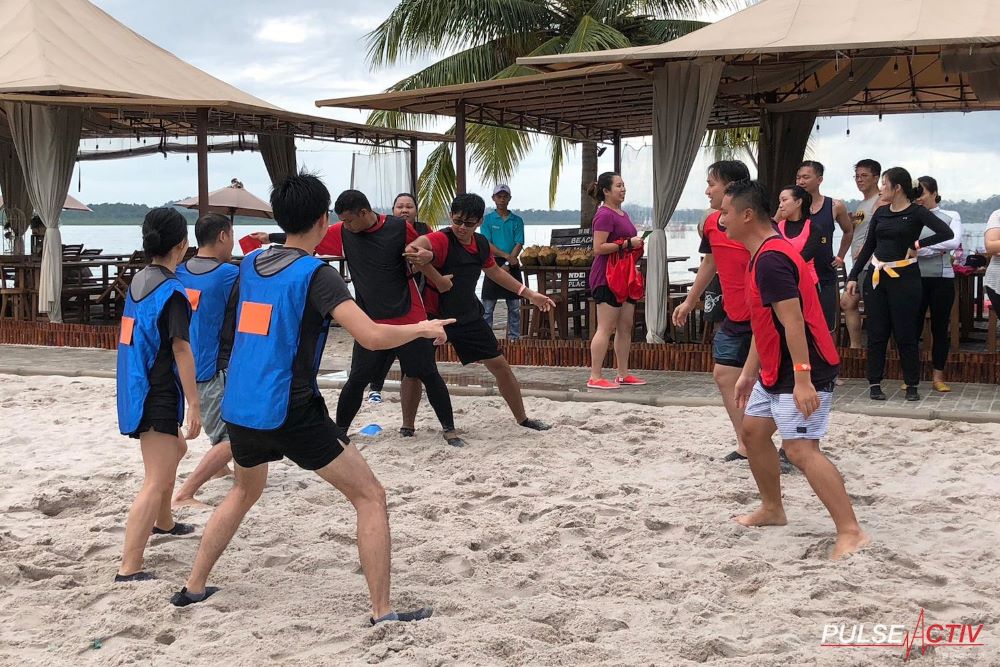Overcoming Language Barriers in Overseas Retreats: Tips for Effective Communication
Corporate retreats are invaluable for fostering teamwork, creativity, and relaxation. However, when these retreats take place overseas, language barriers can pose a significant challenge to effective communication. Whether you’re planning a retreat in a non-English-speaking country or have a diverse team with varying language skills, overcoming these barriers is crucial for the success of your event. This article offers practical advice on how to navigate language differences, ensuring that your retreat is both inclusive and productive.
1. Hire Professional Translators and Interpreters
One of the most effective ways to bridge language gaps during an overseas retreat is by hiring professional translators or interpreters. These experts can facilitate clear communication between your team and local service providers, ensuring that nothing is lost in translation. Translators can assist with written materials, while interpreters can be present during meetings, activities, and casual conversations.
Key Considerations:
- Determine the Need: Assess the languages spoken by your team and the local population to determine the need for translation services.
- Choose the Right Type: Decide whether you need simultaneous interpreters for real-time communication or consecutive interpreters for one-on-one conversations.
- Plan Ahead: Book translators or interpreters well in advance to ensure availability.
2. Utilize Language Apps and Tools
In today’s digital age, language apps and translation tools can be a lifesaver during overseas retreats. Apps like Google Translate, iTranslate, and Duolingo offer instant translations, helping team members communicate basic needs and understand local signage, menus, and directions.
Best Practices:
- Familiarize Your Team: Encourage participants to download and familiarize themselves with language apps before the retreat.
- Offline Access: Choose apps that offer offline functionality, as internet access may be limited in some retreat locations.
- Practice Key Phrases: Have your team learn a few essential phrases in the local language to enhance their experience and show respect for the local culture.
3. Conduct Cultural Sensitivity Training
Understanding the cultural nuances of the host country is just as important as overcoming language barriers. Cultural sensitivity training can help your team navigate potential misunderstandings and build stronger connections with local partners and communities.
Training Tips:
- Cover Basics: Include sessions on local customs, etiquette, and communication styles to prevent any unintentional offense.
- Role-Playing Exercises: Use role-playing scenarios to simulate interactions with locals, allowing your team to practice respectful communication.
- Engage Local Experts: Consider bringing in local cultural experts to provide insights and answer questions specific to the region.
4. Leverage Multilingual Team Members
If your team includes members who speak the local language or have experience with the local culture, leverage their skills to facilitate communication. These individuals can act as informal interpreters and cultural liaisons, helping to bridge the gap between your team and local contacts.
Implementation Strategies:
- Identify Language Skills: Before the retreat, identify team members who are proficient in the local language.
- Assign Roles: Assign these individuals specific roles during the retreat, such as guiding group discussions or assisting with local interactions.
- Encourage Collaboration: Promote collaboration between multilingual and monolingual team members to enhance communication and cultural exchange.
5. Prepare Bilingual Materials
Providing bilingual materials, such as schedules, maps, and instructions, can significantly reduce confusion and enhance the overall retreat experience. These materials ensure that everyone has access to the same information, regardless of their language proficiency.
Preparation Tips:
- Use Simple Language: When creating bilingual materials, use simple, clear language that is easy to translate.
- Visual Aids: Incorporate visual aids, such as icons and diagrams, to complement written instructions and make them easier to understand.
- Test for Accuracy: Have bilingual team members review translated materials to ensure accuracy and cultural appropriateness.
6. Foster an Inclusive Communication Environment
Creating an inclusive communication environment is essential for overcoming language barriers. Encourage open communication, where team members feel comfortable asking for clarification or assistance when needed.
Promoting Inclusivity:
- Encourage Patience: Remind participants to be patient and understanding when communicating with others who may struggle with the language.
- Use Simple English: For teams with varying English proficiency, encourage the use of simple, straightforward language to minimize misunderstandings.
- Facilitate Group Activities: Organize group activities that require minimal verbal communication, such as team-building exercises or cultural experiences, to promote bonding without relying heavily on language.
Conclusion: Enhancing Communication Across Cultures
Overcoming language barriers in overseas retreats is not just about translation; it’s about fostering an environment where everyone feels understood and included. By hiring professional translators, utilizing language apps, conducting cultural sensitivity training, leveraging multilingual team members, preparing bilingual materials, and fostering an inclusive communication environment, you can ensure that your retreat is a success.
Effective communication transcends language. With the right strategies in place, your overseas retreat can be a rewarding and enriching experience for everyone involved, strengthening team bonds and leaving a lasting impact on your organization.
To head back to read another article in our blog, click here.

